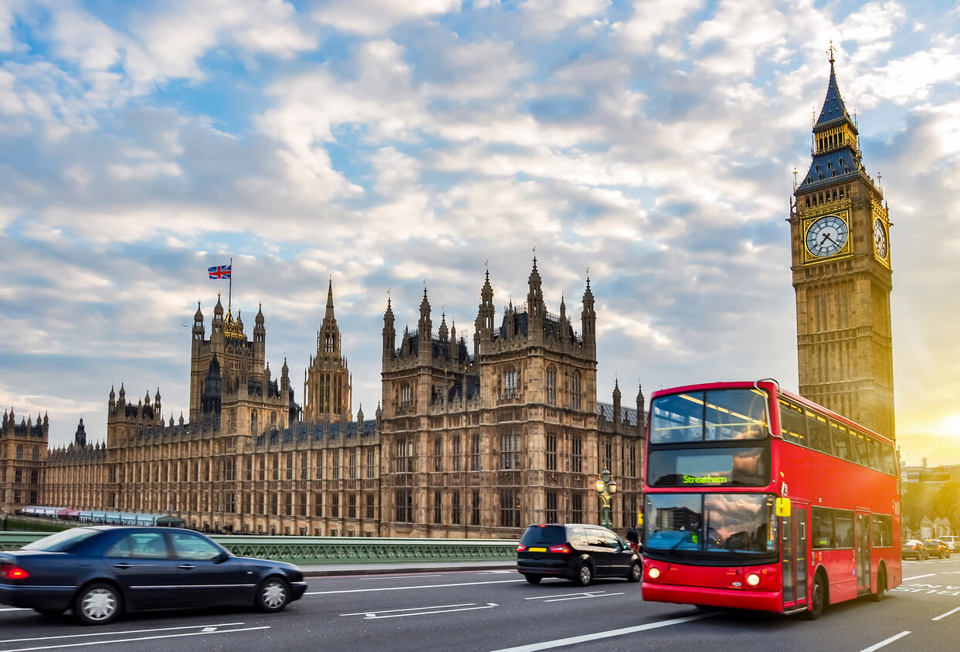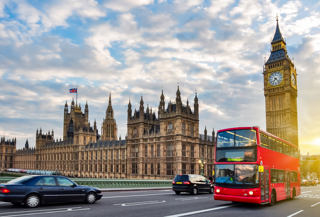Tough new emissions standards for vehicles entering central London come into force today (Monday, October 23).
The £10 ‘Toxicity Charge’, also known as the Emissions Surcharge or T-charge, operates on top of, and during the same operating times, as the congestion charge (Monday to Friday 7am-6pm). It now costs £21.50 to drive a pre-Euro 4 vehicle in the zone.
However, London assembly member Shaun Bailey believes the T-charge, as well as the Mayor’s planned expansion of the Ultra-Low Emission Zone (ULEZ), will put jobs at risk.
Earlier this year, he put forward an alternative plan which included investing more in hydrogen buses and targeting pollution hot spots around the capital.
Up to 10,000 of the oldest, most polluting vehicles are expected every weekday to be liable for the new emissions levy, which will apply to vehicles that do not meet Euro 4 standards – typically those diesel and petrol vehicles registered before 2006.
It uses a camera-based mechanism for enforcement, monitoring both diesel and petrol vehicles. Failure to pay the daily charge will result in a £130 fine, reduced to £65 if paid within 14 days.
Bailey says that small businesses with older vehicles will be hardest hit, facing fees of £2,600 a year or having to fork out between £3,000 and £7,000 to renew their vehicles.
He said: “As an asthmatic I’m well aware of how critical an issue this is for London but we need policies that actually deliver progress.
“When the Mayor’s own assessments prove it won’t work, the T-charge becomes nothing more than an attack on London’s poorest drivers and small businesses.
“Sadiq Khan tells us he is desperate to clean up London’s harmful emissions but this road tax won’t make a dent. I will be happy to support the Mayor when he comes forward with policies that support London and not just his image.
“By boasting about a policy that so disproportionately penalises London’s poorest drivers and puts jobs at risk, the Mayor is simply blowing more smoke into the capital’s already-polluted atmosphere.”
The Road Haulage Association (RHA) is also warning that the London economy risks being damaged by the new Toxin Tax and the planned ULEZ.
RHA chief executive Richard Burnett said: “We fully appreciate Mayor Khan’s vision for a cleaner, healthier London. It’s a city that is justifiably proud of its position as one of the world’s great business centres and tourist attractions.
“However, to further penalise the industry that is responsible for keeping the shelves of its stores, restaurants and tourist attractions is not the way to do it. It’s wrong to punish the lorry industry that moves the UK economy.
“The road freight industry is responsible for the movement of 98% of all the foods we eat and an overwhelming proportion of everything consumed in the UK – yet once again we are the ones getting penalised for doing a crucial and essential job; keeping the economy – especially the economy of London moving.
“The T-Charge on lorries is a modest tax, but the coming changes the mayor plans for ULEZ in 2019 will be a massive tax burden. It will impose taxes on those operators of lorries just a few years old who simply cannot afford replace nearly new lorries - we will see jobs lost and hauliers put out of business to achieve very modest air quality improvement.
“It will mean prices consumers have to pay rising at a time of uncertainty over Brexit that’s a threat to the UK economy.”
However, James McKemmy, head of customer operations at POD Point, said: “While some drivers might quibble, this is undoubtedly a positive step both for the health and well-being of people in London, but also those involved in the UK’s burgeoning low emission vehicle sector.”
He continued: “London suffers from high levels of nitrogen oxides, particulate matter and carbon monoxide - all common in exhaust fumes. While there are still emissions caused through the generation of the electricity that charges our electric cars, these are reducing every year and are produced outside densely populated areas.
“This means there are effectively zero harmful gas emissions from electric vehicles in urban centres like London, offering radical improvements in urban air quality.”
Matthew Walters, head of consultancy and customer data services at LeasePlan UK, said: “Many fleets will already be ready for London’s T-charge. So long as their cars, vans and HGVs are at least Euro 4/IV compliant, they will avoid the £10-a-day surcharge that Sadiq Khan is imposing on older vehicles.
“Despite this, the introduction of the T-Charge is still a significant moment for fleets. It represents another step towards an Ultra-Low Emission Zone in London, which is likely to come into force in 2019. A greater number of vehicles will be affected by this measure, as well as by the Clean Air Zones planned for elsewhere in the country.
“LeasePlan is encouraging fleets - and motorists more generally – to prepare for this future."























john4870 - 23/10/2017 13:19
So the T-charge is only M-F 0700-1800hrs. Am I missing something? Don't asthmatics etc, suffer after 6pm and weekends then?